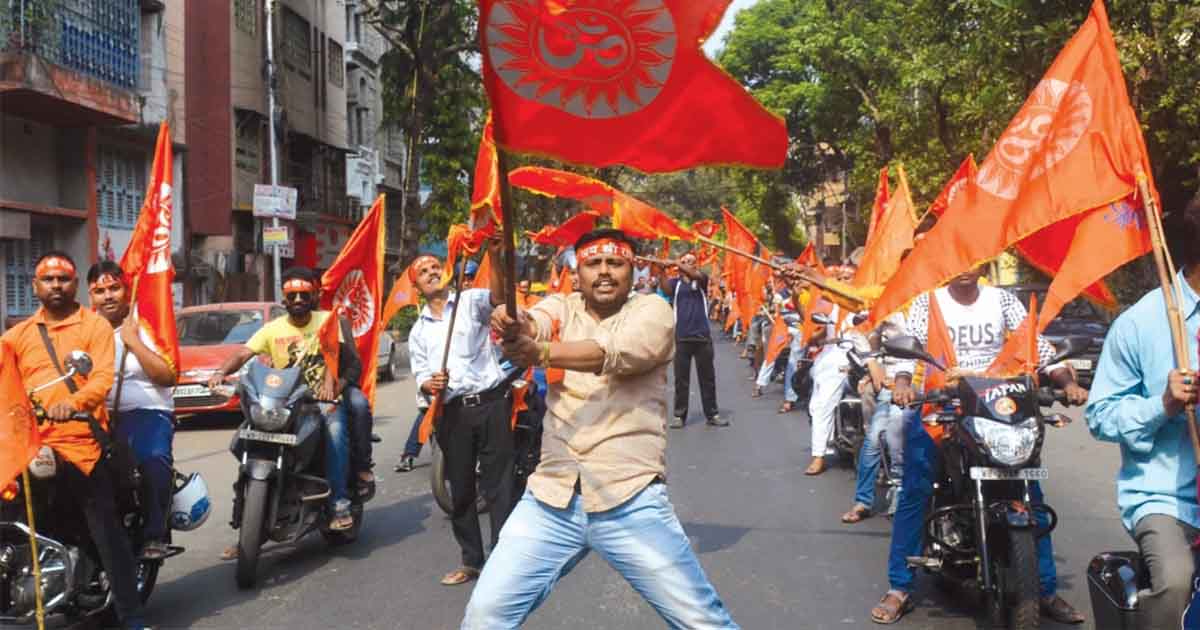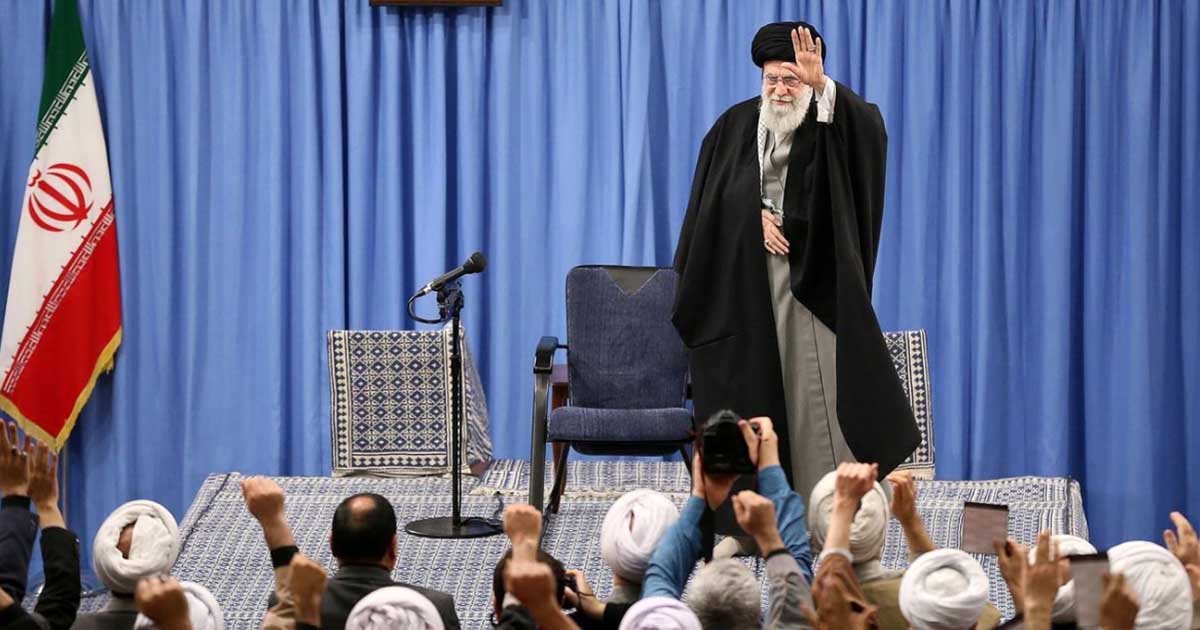Indian Ministry of Information and Broadcasting has issued instructions to media houses to be careful while choosing content related to the ongoing protests in the country.
In the advisory issued this week, the ministry had asked all private satellite TV channels to be particularly cautious about airing content that is likely to incite violence, promote “anti-national attitudes” and contains anything affecting the integrity of the nation.
Words and tones of the advisory sound similar to the warnings and notifications issued by Pakistan Media Regulatory Authority (PEMRA) from time to time. And this points to how badly the Indian state is being affected by the ongoing protests by Muslims in dozens of cities across India. Muslims are protesting against the Citizens Amendment Act (CAB) passed by the Modi government that provides a process to fast track immigration for Hindus from neighbouring states of Pakistan, Afghanistan and Bangladesh but excludes Muslims from the list. Muslims who have been very badly suppressed under the rising Hindutva politics have suddenly taken to streets.
India’s pro-Hindutva government that passed the controversial citizenship bill was not expecting such huge opposition from the religious minorities in the country. Muslims have not reacted on streets like that since the tragic events of early 1990’s when Babari Masjid was demolished by RSS Karsevaks and Bombay riots.
Advisory to TV channels on reportage of violent protests against #CAA pic.twitter.com/UdCM3Rxjg2
— The Times Of India (@timesofindia) December 20, 2019
The controversial act is an amendment to a 1955 piece of legislation granting citizenship to “persecuted” minorities – Hindus, Sikhs, Buddhists, Jains, Parsis and Christians – from Bangladesh, Afghanistan and Pakistan – but excludes Muslims.
The BJP government says the legislation protects people fleeing religious persecution, but opponents criticize it as being anti-Muslim and violating the spirit of the country’s secular constitution. The situation turned from bad to worse when at least six people protesting against a new citizenship law were in clashes in various parts of the northern Indian state of Uttar Pradesh, according to police.
Read More: India death toll rises in clashes over citizenship law
Shrish Chand, spokesperson of Uttar Pradesh police, said two protesters were killed on Friday in Bijnor, with the rest of the deaths occurring in Meerut, Kanpur, Sambhal and Firozabad. “Cause of death will be cleared after post-mortem,” Chand told Al Jazeera.
Some 3,600 people were arrested as a preventative measure in Uttar Pradesh, police said. In Lucknow, 112 preventive arrests were made while 50 people were booked and arrested under various charges. In the capital New Delhi, 1,200 people were detained for violating a ban on public gatherings.
Internet and all communication lines shut off in Tripura after reported clashes. pic.twitter.com/Mxpp2k8ugj
— Makepeace Sitlhou (@makesyoucakes) December 10, 2019
Police told international media on Friday those people have been released without charge. Analyst Ravi Krishnani writes that “to make matters worse, the country’s media has become extremely pliant and is failing to hold the prime minister and his government to scrutiny.
With most of the mainstream media, especially the influential TV news channels, acting as government mouthpieces, Internet shutdowns exacerbate under-reporting on local issues — which leaves India’s citizenry less informed about the government’s activity. Staying informed is all the more important when the government is taking controversial steps like stripping Kashmir of its autonomy or changing citizenship laws”.
Read More: Indian Muslims angered by the threat to citizenship
Internet services have also been shut down in some areas of India where clashes between the protesters and police are on the rise.
There is a growing perception in India’s liberal circles at home and abroad that the transformation of India has been completed. PM Modi has successfully wrapped up the Indian secularism and a fascist ideology has made inroads into a highly diverse society.
The Editors Guild of India slams the government
The Editors Guild of India on Saturday sought the withdrawal of a recent advisory issued by the Ministry of Information and Broadcasting asking all private television channels to desist from showing content that could incite violence or promote “anti-national attitudes”.
The Guild said it believes that the media’s overall commitment to responsible coverage of developments in the country should not be questioned through such an advisory.
‘CAA is anti-Muslim’
India’s capital, New Delhi, also witnessed massive demonstrations against the law. The protesters are also demanding an investigation into Sunday’s violence in the federally run Jamia Milia Islamia (JMI) university, where police barged into the campus, beat up students and allegedly vandalized university property.
Soon after the Friday afternoon prayers, thousands of protesters rallied from the historic Jama Masjid in Old Delhi to the nearby Delhi Gate carrying national flags and placards and shouting anti-CAA and anti-government slogans. “We will fight this anti-Muslim law tooth and nail. We will rather die but will not back down this time. This government has to revoke its decision at any cost,” a protester told media.
Read More: India’s Citizenship Amendment Bill under a Muslim lens!
Hundreds of police and Rapid Action Force (RAF) personnel were deployed at Delhi Gate to stop the demonstrators from proceeding further, while several metro stations were shut down.
Initially peacefully, the protest turned violent with protesters setting a vehicle on fire and police using water cannon to disperse them “CAA is anti-Muslim and it has to go,” said Feroz Khan, a protester. “Our protests will continue ’til the act is not struck down.”
The rise of Hindutva Regime in India
There is a widely held perception that India is on its way to become a ‘no-man-s land’ for the Muslims. The mob justice, public humiliation of young Muslim men and recent decision of the Indian Supreme Court reflect India’s sociopolitical transformation from a secular state to an anti-Muslim regime.
Debarati Guha, head of DW’s Asia Service, opines that “this unconstitutional act also violates and shreds the provisions in the Indian constitution that guarantee citizens’ right to equality, equality before the law and non-discriminatory treatment by the Indian state”.
Read More: Two dead in India as police fire at demo against citizenship bill
While highlighting the transformation process of India from a secular state to a Hindutva dominated regime, Debarati Guha points that “even the Supreme Court of India recently awarded a disputed site in the town of Ayodhya to a government-run trust for the construction of a temple to the Hindu god Ram.
The disputed land was the site of the 16th-century Babri Masjid mosque, which was razed by angry Hindu mobs in 1992 claiming that a Ram temple predated the mosque. With its verdict, the top court granted the land to the “big brother” and told the bullied “little brother” to play somewhere else”. It is yet to be seen how will the Modi’s regime deal with the protesters ultimately?














